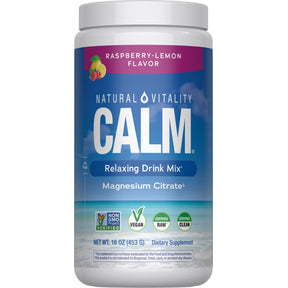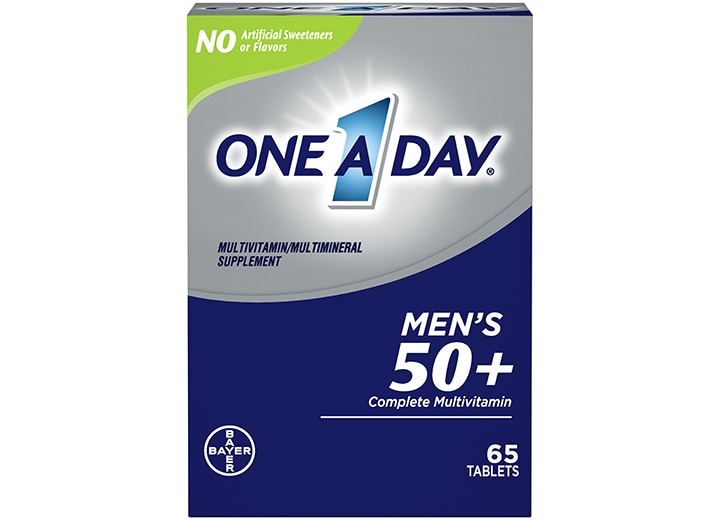Fill nutritional gaps with this comprehensive multivitamin designed for adults 50+. Includes immune-supporting vitamins C, D, and zinc plus B-complex for energy. Formulated for easy absorption by mature adults.
COPD Essentials
Take Control of Your COPD - Discover Tools Used by 50,000+ Patients. From daily oxygen monitoring to sleep-saving air purifiers, find the exact products your pulmonologist wishes you knew about. Every recommendation tested by real COPD patients.

Magnesium for COPD
Support muscle function and reduce cramping with this highly-absorbable magnesium supplement. Many COPD patients are deficient in magnesium, which can worsen breathing difficulties. Third-party tested for purity.
Magnesium for COPD
💪 The Missing Mineral That Could Transform Your Breathing - 75% of COPD Patients Are Deficient
Your breathing muscles are working overtime, but are they getting the mineral support they need? Magnesium deficiency affects up to 75% of COPD patients, weakening the diaphragm and respiratory muscles that are already struggling to keep up. This essential mineral supports muscle function, reduces inflammation, and may help prevent the painful cramps that many COPD patients experience.
"After three months on magnesium, my leg cramps stopped and my breathing feels less labored during daily activities. I wish I'd started sooner." - Carol D., COPD Patient
🫁 Why COPD Patients Desperately Need Magnesium
Respiratory Muscle Support: Your diaphragm and intercostal muscles work 3x harder with COPD. Magnesium is essential for muscle contraction and relaxation - without adequate levels, breathing becomes even more exhausting.
Inflammation Reduction: COPD creates chronic inflammation that damages lung tissue. Magnesium has anti-inflammatory properties that may help reduce this ongoing damage.
Medication-Induced Depletion: Common COPD medications like diuretics and bronchodilators can deplete magnesium levels, creating a deficiency cycle that worsens symptoms.
Cramp Prevention: Many COPD patients suffer painful leg, foot, and chest muscle cramps. Magnesium deficiency is often the culprit behind these debilitating spasms.
🔬 Science-Backed Benefits for COPD Management
✅ Respiratory Muscle Function - Supports diaphragm strength and endurance
✅ Bronchodilation Support - May help relax airway smooth muscles
✅ Anti-Inflammatory Effects - Reduces inflammatory markers in lung tissue
✅ Cramp Prevention - Eliminates painful muscle spasms common in COPD
✅ Heart Health - Supports cardiovascular function often compromised in COPD
✅ Sleep Quality - Improves rest quality crucial for COPD recovery
📊 The COPD Magnesium Deficiency Crisis
Alarming Statistics: Research shows 60-75% of COPD patients have low magnesium levels, compared to 20% of healthy adults.
Common Causes in COPD:
- Medication depletion from diuretics and beta-agonists
- Poor absorption due to digestive issues from steroids
- Increased needs from chronic inflammation and muscle overwork
- Dietary inadequacy from reduced appetite and eating difficulties
Symptoms of Deficiency:
- Muscle cramps and spasms
- Increased breathing difficulty
- Fatigue and weakness
- Sleep disturbances
- Heart rhythm irregularities
💰 Affordable Daily Support: $8-15/Month
For less than the cost of a single coffee shop visit, quality magnesium supplementation provides daily respiratory muscle support and cramp prevention. Most high-absorption forms cost under 50 cents per day.
💊 Find Quality Magnesium Supplements (Available with Prime shipping)
✅ What COPD Patients Report After Starting Magnesium
- "My painful leg cramps finally stopped" - Muscle spasm relief within weeks
- "Breathing feels less labored during activities" - Improved respiratory muscle function
- "Sleep better and wake up less tired" - Enhanced rest quality and recovery
- "Doctor says my inflammation markers improved" - Measurable health benefits
⚠️ Important Supplementation Considerations
- Gradual introduction - Start with lower doses to assess tolerance and avoid digestive upset
- Medication interactions - May enhance effects of blood pressure and heart medications
- Quality matters - Choose chelated forms (glycinate, citrate) for better absorption
- Doctor consultation - Discuss with healthcare provider, especially if taking heart medications
🎯 Essential for COPD Patients Who:
- Experience frequent muscle cramps in legs, feet, or chest area
- Take diuretics or bronchodilators that can deplete magnesium levels
- Have confirmed deficiency through blood testing or dietary analysis
- Want natural inflammation support alongside conventional COPD treatments
- Struggle with sleep quality affecting COPD recovery and energy levels
- Seek evidence-based supplementation with proven respiratory benefits
🏆 Why Choose Quality Magnesium Over Generic Options?
Absorption Matters: Cheap magnesium oxide has poor absorption (4-10%) while quality chelated forms absorb at 80-90% rates.
Digestive Tolerance: Premium forms like magnesium glycinate cause fewer digestive issues that can interfere with COPD medication absorption.
Therapeutic Dosing: Quality supplements provide consistent, reliable dosing needed for therapeutic effects rather than minimal maintenance amounts.
Purity Standards: Third-party tested supplements ensure no contaminants that could worsen respiratory sensitivity.
🚨 Critical Deficiency Signs to Watch For:
- Muscle cramps especially at night or during activity
- Increased breathing difficulty during normal activities
- Heart palpitations or irregular rhythms
- Chronic fatigue beyond normal COPD tiredness
- Poor sleep quality with frequent waking
💡 Optimization Strategies for COPD Patients
Timing Strategy: Take magnesium at bedtime for cramp prevention and improved sleep quality - both crucial for COPD management.
Dosage Guidance: Start with 200-300mg daily and increase gradually based on tolerance and symptom improvement.
Form Selection: Choose magnesium glycinate for best absorption and least digestive upset, especially important for COPD patients with sensitive stomachs.
Synergistic Support: Combine with vitamin D and calcium for optimal muscle and bone health support.
🧪 Research Evidence for COPD Benefits
Clinical Studies: Multiple studies show magnesium supplementation can improve lung function measurements and reduce exacerbation frequency in COPD patients.
Mechanism of Action: Magnesium acts as a natural calcium channel blocker, helping relax bronchial smooth muscles and reduce airway constriction.
Long-Term Benefits: Consistent supplementation may slow COPD progression by reducing chronic inflammation and supporting respiratory muscle function.
Safety Profile: Excellent safety record with few contraindications, making it suitable for long-term COPD management.
🔍 Quality Markers to Look For
Third-Party Testing: USP, NSF, or ConsumerLab certification ensures purity and potency verification.
Chelated Forms: Look for magnesium glycinate, citrate, or malate for superior absorption and tolerance.
Appropriate Dosing: 200-400mg per serving provides therapeutic amounts without exceeding safe upper limits.
Clean Formulation: Avoid unnecessary fillers, artificial colors, or allergens that could trigger respiratory sensitivities.
❓ Frequently Asked Questions
Q: How long before I notice breathing improvements?
A: Most patients report reduced cramps within 2-4 weeks, with breathing benefits becoming apparent after 2-3 months of consistent use.
Q: Can magnesium replace my COPD medications?
A: No, magnesium is a supportive supplement that works alongside prescribed treatments, not a replacement for essential COPD medications.
Q: What about magnesium-rich foods instead?
A: While foods are beneficial, COPD patients often need therapeutic doses difficult to achieve through diet alone due to increased requirements and absorption issues.
Q: Are there any dangerous interactions?
A: Magnesium can enhance blood pressure and heart medications. Always consult your doctor before starting, especially if taking cardiac medications.
Ready to give your overworked breathing muscles the mineral support they desperately need? Start with quality magnesium today and discover why thousands of COPD patients consider this simple supplement essential for better breathing and reduced muscle cramps.
💡 Pro Tip: Ask your doctor to test your magnesium levels before starting supplementation. Many COPD patients are surprised to discover significant deficiency that explains their muscle cramps and breathing difficulties.
Want More COPD Nutrition Support? Our comprehensive Best Vitamins and Supplements for People with COPD 2025 Guide covers magnesium alongside other essential nutrients that work together for optimal respiratory health support.
Similar listings in category
Boost immune function and bone health with high-potency vitamin D3. Many COPD patients have low vitamin D levels, which can increase infection risk. These easy-to-swallow softgels provide optimal absorption.


